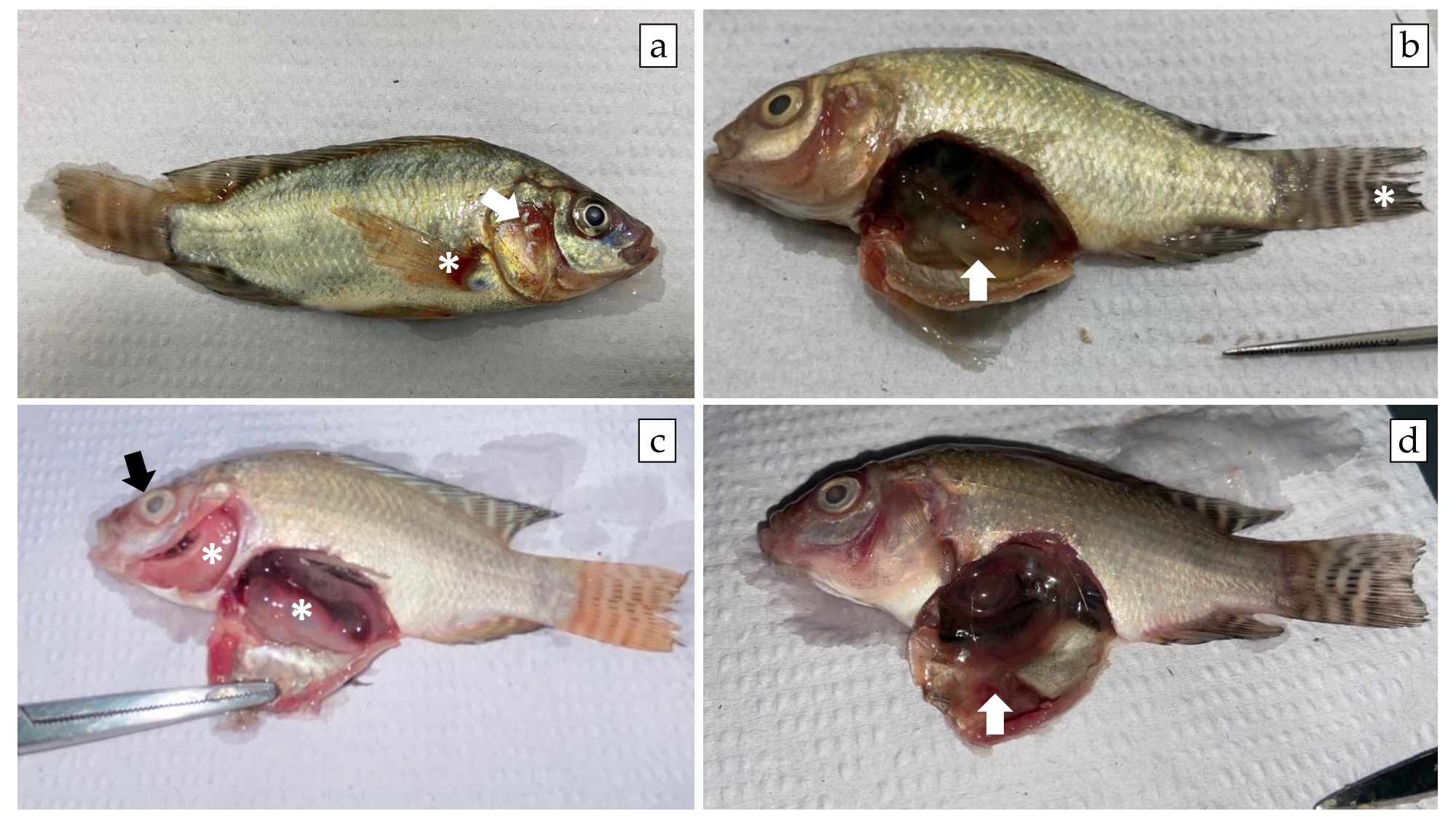
First Report of Aeromonas veronii as an Emerging Bacterial Pathogen of Farmed Nile Tilapia (Oreochromis niloticus) in Brazil
Sandie Bispo dos Santos, Miguel Fernandez Alarcon, Anelise Stella Ballaben, Ricardo Harakava, Renata Galetti, Mateus Cardoso Guimarães, Mariene Miyoko Natori, Leonardo Susumu Takahashi, Ricardo Ildefonso, Marco Rozas-Serri
Abstract
Brazil is one of the world’s leading producers of Nile tilapia, Oreochromis niloticus. However, the industry faces a major challenge in terms of infectious diseases, as at least five new pathogens have been formally described in the last five years. Aeromonas species are Gram-negative anaerobic bacteria that are often described as fish pathogens causing Motile Aeromonas Septicemia (MAS). In late December 2022, an epidemic outbreak was reported in farmed Nile tilapia in the state of São Paulo, Brazil, characterized by clinical signs and gross pathology suggestive of MAS. The objective of this study was to isolate, identify, and characterize in vitro and in vivo the causative agent of this epidemic outbreak. The bacterial isolates were identified as Aeromonas veronii based on the homology of 16S rRNA (99.9%), gyrB (98.9%), and the rpoB gene (99.1%). A. veronii showed susceptibility only to florfenicol, while it was resistant to the other three antimicrobials tested, oxytetracycline, enrofloxacin, and amoxicillin. The lowest florfenicol concentration capable of inhibiting bacterial growth was ≤0.5 μg/mL. The phenotypic resistance of the A. veronii isolate observed for quinolones and tetracycline was genetically confirmed by the presence of the qnrS2 (colE plasmid) and tetAantibiotic-resistant genes, respectively. A. veronii isolate was highly pathogenic in juvenile Nile tilapia tested in vivo, showing a mortality rate ranging from 3 to 100% in the lowest (1.2 × 104) and highest (1.2 × 108) bacterial dose groups, respectively. To our knowledge, this study would constitute the first report of highly pathogenic and multidrug-resistant A. veronii associated with outbreaks and high mortality rates in tilapia farmed in commercial net cages in Brazil.